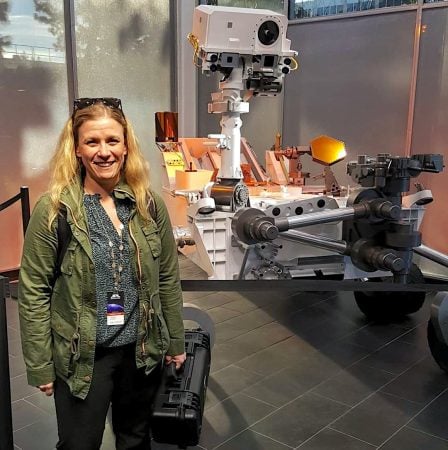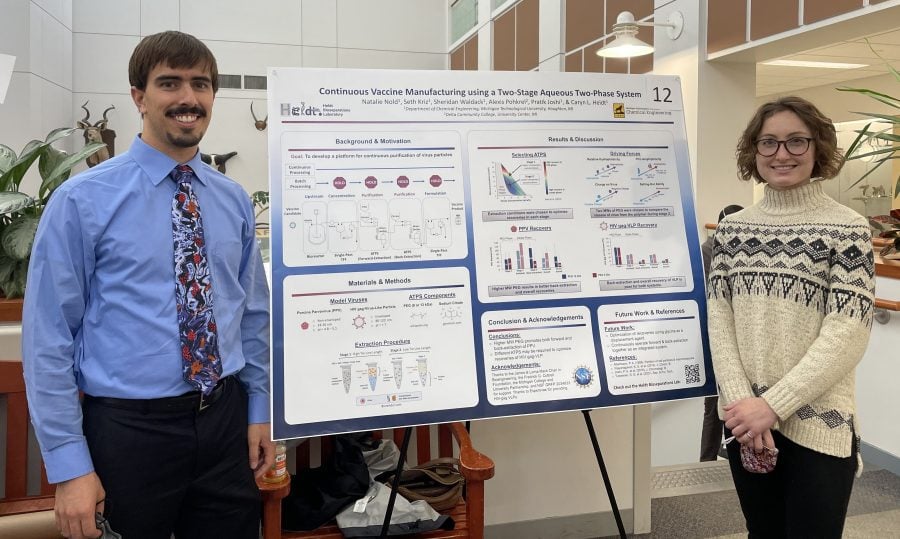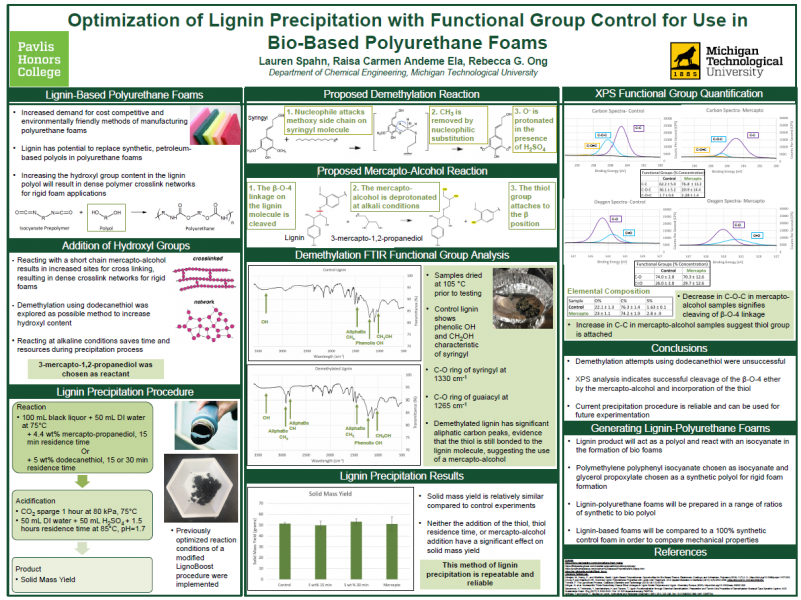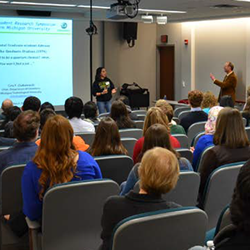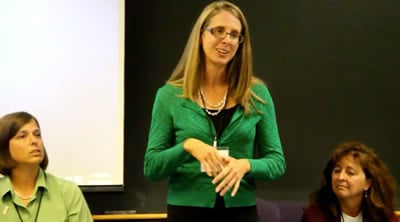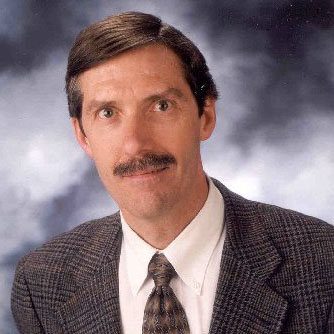More than 800 first-year engineering Huskies turned out for the College of Engineering’s (COE’s) annual lecture, designed especially for them. The First-Year Engineering Series lecture took place Monday, Aug. 26, at the Rozsa Center, hosted by the Department of Engineering Fundamentals. This year’s featured lecturer was chemical engineering alumna Jessica Elwell ’02 ’03.
“Jessica told the fascinating and inspiring story of how she and her team at OxEon Energy worked with NASA to figure out how to make oxygen from in-situ resources on Mars (Yes, Mars!),” said COE Dean Michelle Scherer. “She also shared her journey to being chief operating officer at OxEon and how she has been able to focus her work on her passion of converting carbon dioxide into oxygen and sustainable fuels.”
Scherer said Elwell’s words of wisdom reinforced why it’s important to move outside the comfort zone to try new things and to remember that engineering design requires failing many times until you find the solution.
Read more about the lecture series and Elwell’s accomplishments on the College of Engineering Blog.
